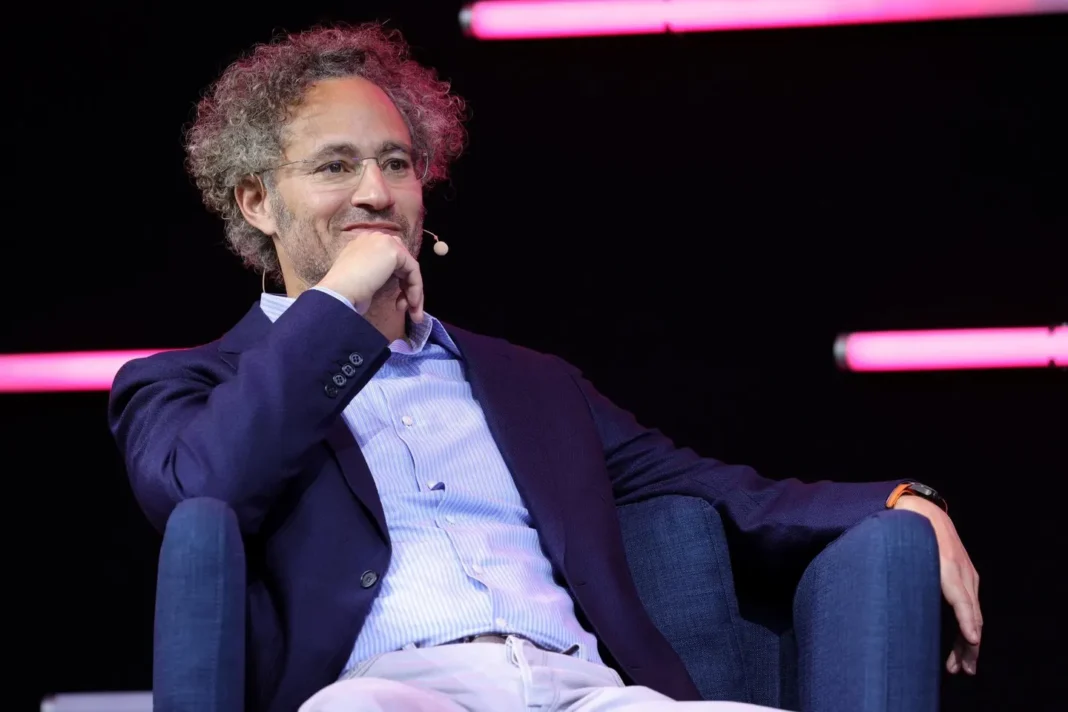In a legal battle that is poised to shake up the rapidly growing intersection of AI and healthcare, Palantir Technologies, the $198 billion tech giant, has filed a lawsuit against Y Combinator-backed startup Guardian AI. The lawsuit, filed in the U.S. District Court for the Southern District of New York, accuses Guardian AI’s founders—former Palantir employees Mayank Jain and Pranav Pillai—of stealing trade secrets to launch their own AI-driven platform designed to help healthcare providers battle insurance claim denials.
The Allegations: A Case of “Brazen” Theft
According to Palantir’s lawsuit, Jain and Pillai—who worked at Palantir in its healthcare division from 2022 to 2024—used proprietary information to create Guardian AI. The suit claims that the two individuals “took Palantir’s work and applied it to a startup incubator to commercialize these projects for their own financial gain” while still employed at the company. Palantir contends that Jain and Pillai’s actions were not only unethical but also illegal, as they allegedly used Palantir’s AI innovations to build their own competing platform.
In the lawsuit, Palantir asserts :
“There is no mistaking Defendants’ work for anything but a rip-off of Palantir”
This statement highlights the company’s belief that Guardian AI’s platform directly copies Palantir’s proprietary technology, emphasizing the severity of the alleged misconduct.
In response to the allegations, Jain stated that the company is “working on resolving it with Palantir,” but declined to offer further comments.
The Birth of Guardian AI
Guardian AI, founded by Jain and Pillai after their departure from Palantir, aims to address one of the most significant challenges faced by healthcare providers today: insurance claim denials. The platform utilizes AI to help healthcare organizations reduce write-offs and administrative burdens by providing an efficient way to manage and fight claim denials. Within weeks of their resignation, the startup had reportedly saved customers more than $150,000.
The AI-driven solution employed by Guardian AI is similar to Palantir’s own healthcare division, which uses AI and data analytics to assist healthcare providers in managing insurance claims. Palantir’s healthcare division, which is responsible for a substantial portion of the company’s commercial business, has grown rapidly, with its AI-driven software now managing a significant portion of U.S. hospital beds. The company claims that the healthcare division has grown 267% between 2020 and the first half of 2022, signaling the importance of healthcare in Palantir’s long-term strategy.
A Competitive Market for AI in Healthcare
The legal dispute between Palantir and Guardian AI comes at a time when AI tools for insurance claim management are gaining momentum. UnitedHealthcare’s high-profile insurance denials and the tragic shooting of its CEO last year sparked a national conversation about the role of AI in healthcare decision-making. In response, startups like Claimable and FightHealthInsurance.com have emerged, offering innovative AI solutions to help healthcare providers navigate insurance denials and administrative challenges.
While Palantir is best known for its work in defense and intelligence, the company’s growing presence in the healthcare sector has made it a major player in this space. With the rise of AI-driven solutions in healthcare, the competition is heating up, and the legal battle with Guardian AI is only adding fuel to the fire.
The Lawsuit’s Impact on the AI Landscape
Palantir’s lawsuit against Guardian AI not only highlights the legal complexities surrounding AI innovation but also raises questions about the ethical boundaries of employee knowledge transfer. If the allegations are proven true, the case could serve as a cautionary tale for tech employees looking to transition into the startup world. Companies like Palantir, which rely heavily on proprietary data and AI-driven solutions, are likely to take similar steps to protect their intellectual property in an increasingly competitive market.
Palantir is seeking treble damages and attorney’s fees, as well as arbitration to recover compensation from Jain and Pillai. The company’s legal team has accused the two founders of making a “brazen” attempt to profit from Palantir’s work, claiming that the two men used their insider knowledge to launch Guardian AI with a clear advantage over other startups in the space.
What’s Next for Palantir and Guardian AI?
As the legal battle unfolds, the future of Guardian AI remains uncertain. While Palantir has dominated the healthcare AI space, Guardian AI’s ability to raise capital and secure backing from Y Combinator indicates the growing demand for innovative solutions in healthcare insurance management. The lawsuit will not only determine the fate of Guardian AI but could also shape the landscape of AI in healthcare for years to come.
Palantir, for its part, continues to expand its operations in healthcare, having recently reported $2.9 billion in revenue for 2024, a 29% increase from the previous year. The company is expected to earn more than $3.7 billion in 2025, with healthcare being one of its fastest-growing sectors. Palantir’s focus on data analytics and AI solutions is likely to keep it at the forefront of the healthcare technology sector, even as it faces legal challenges from its former employees.
The outcome of this lawsuit will have implications not only for Palantir and Guardian AI but for the broader AI and healthcare industries. As competition intensifies, companies will need to find new ways to protect their intellectual property while continuing to innovate in this rapidly evolving market.


